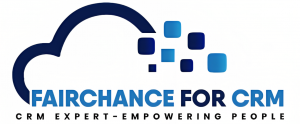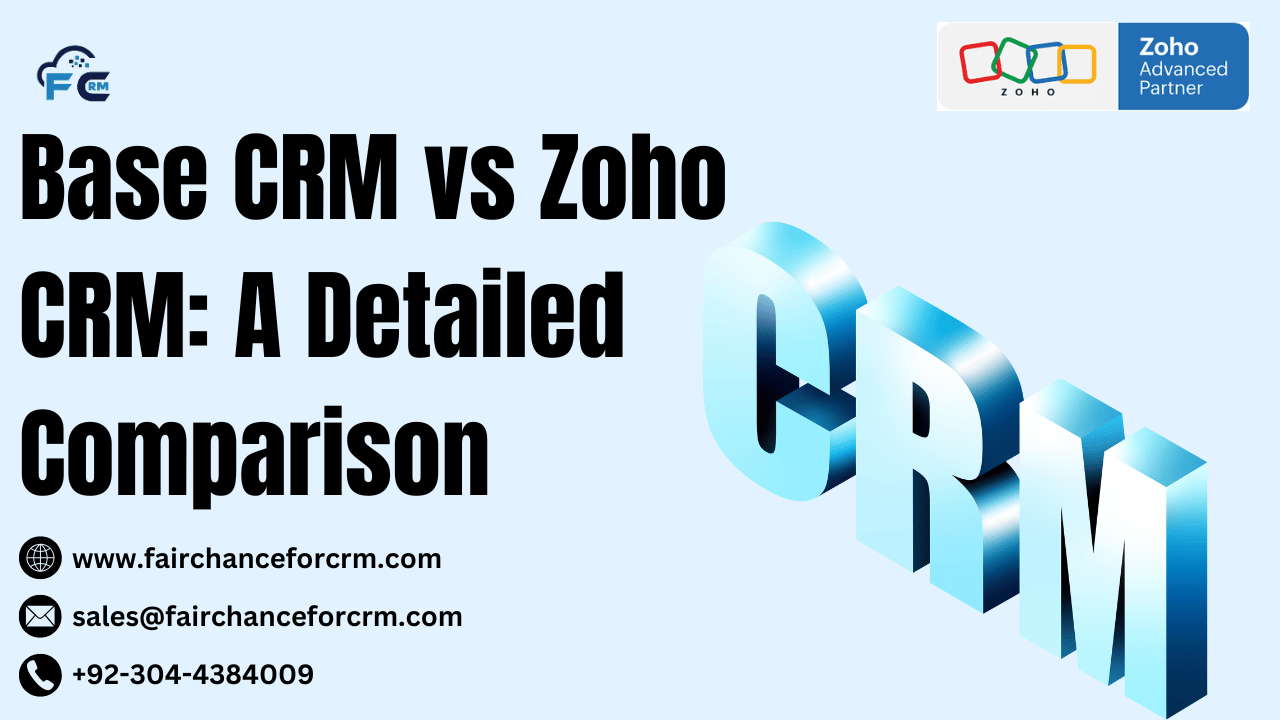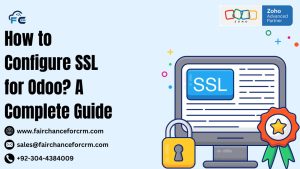Base CRM vs Zoho CRM is our topic. In the world of Customer Relationship Management (CRM) software, businesses have an array of tools to choose from, depending on their specific needs. Two popular CRMs that often come up in discussions are Base CRM (now Zendesk Sell) and Zoho CRM. While both are excellent at helping businesses build and nurture customer relationships, they each come with their own strengths, unique features, and target audiences.
In this blog, we’ll explore the key differences between Base CRM (Zendesk Sell) and Zoho CRM, covering their features, user experience, pricing, and which business types they are best suited for.
Also Read:
- Bullhorn CRM vs Zoho CRM: A Comprehensive Comparison
- PandaDoc CRM Vs Zoho CRM: A Detailed Comparison
- Ontraport CRM Vs Zoho CRM: A Comprehensive Comparison
- Teamgate CRM Vs Zoho CRM: A Comprehensive Comparison
- Zoho People Revolutionizing Project-Excellence and Business
Base CRM vs Zoho CRM
What is Base CRM (Zendesk Sell)?
Overview
Originally known as Base CRM, Zendesk Sell is a CRM solution offered by Zendesk, a company known for its customer service and support software. Zendesk Sell is specifically designed to help sales teams streamline their processes, automate tasks, and increase productivity.
While Zendesk Sell is part of the larger Zendesk ecosystem, it stands out by focusing on sales teams rather than customer support teams. It provides features that help manage leads, track sales activity, and gain insights into the sales pipeline.
Key Features of Zendesk Sell (Base CRM):
- Sales Pipeline Management: Zendesk Sell’s sales pipeline management allows users to track deals from start to finish, helping sales teams stay organized and ensure that no opportunities are missed.
- Automation & Workflow: The CRM offers workflow automation to streamline repetitive tasks, like sending follow-up emails or assigning leads to the right team members.
- Email Integration: Zendesk Sell integrates seamlessly with email platforms (such as Gmail and Outlook), so sales reps can track email opens, click rates, and other important metrics directly from the CRM.
- Mobile Access: The mobile app lets sales teams stay productive on the go by giving them access to customer data, deals, and tasks from anywhere.
- Reporting & Analytics: Zendesk Sell provides customizable reports and analytics, offering sales teams insights into their performance, forecasting, and sales trends.
- Integration with Zendesk: If your business is already using Zendesk Support, Zendesk Sell offers smooth integration, ensuring that both customer service and sales teams are on the same page.
Pros of Zendesk Sell (Base CRM):
- Seamless integration with Zendesk’s customer support tools, making it ideal for businesses already using Zendesk for customer service.
- Clean and intuitive user interface, with a focus on usability and ease of use.
- Excellent for sales teams looking for a simple, easy-to-navigate CRM that doesn’t require steep learning curves.
- Strong automation tools for tasks like follow-ups, lead nurturing, and email tracking.
- Comprehensive reporting and analytics to help teams make informed decisions.
Cons of Zendesk Sell (Base CRM):
- Relatively expensive, especially for smaller businesses or teams with limited budgets.
- Limited features for customer support and marketing automation compared to some other CRMs.
- Fewer customization options compared to some competitors, particularly in terms of fields, workflows, and modules.
What is Zoho CRM?
Overview
Zoho CRM is a cloud-based CRM solution that caters to businesses of all sizes and industries. It’s widely known for its affordability, flexibility, and comprehensive suite of features. Unlike Zendesk Sell, which focuses primarily on sales teams, Zoho CRM offers a broader set of tools that includes sales, marketing, customer support, and analytics, making it a robust solution for companies looking to manage customer relationships across different departments.
Key Features of Zoho CRM:
- Lead & Contact Management: Zoho CRM helps businesses track and manage leads from various channels, such as social media, websites, and email. The platform offers a 360-degree view of each customer’s interaction with your brand.
- Sales Pipeline Management: Just like Zendesk Sell, Zoho CRM offers a visual sales pipeline, enabling businesses to track the progress of deals and identify bottlenecks in the sales process.
- Marketing Automation: One of Zoho CRM’s standout features is its marketing automation tools. Businesses can set up automated email campaigns, workflows, and lead nurturing programs to help move prospects through the funnel.
- Analytics & Reporting: Zoho CRM provides advanced reporting and analytics to give users deep insights into sales performance, revenue forecasting, and customer behavior.
- Multi-Channel Communication: Zoho CRM allows businesses to interact with customers through multiple channels, such as email, chat, social media, and even direct messaging.
- AI Assistance (Zia): Zoho’s AI assistant, Zia, offers predictions, lead scoring, task automation, and even sentiment analysis to help businesses make more informed decisions.
Pros of Zoho CRM:
- Highly customizable to meet the unique needs of different industries, teams, and business processes.
- Affordable pricing structure, with various plans for different business sizes and budgets.
- A comprehensive suite of features that covers not just sales, but also marketing and customer service.
- Advanced reporting and analytics tools for businesses to gain insights into their operations.
- Integration with a wide range of third-party apps, including Google Workspace, Mailchimp, QuickBooks, and more.
Cons of Zoho CRM:
- Some advanced features are only available in higher-tier plans, making it more expensive as businesses scale.
- The user interface can be overwhelming, especially for new users who are unfamiliar with CRM software.
- Initial setup and configuration can take time, especially for highly customized workflows and processes.
Feature Comparison: Zendesk Sell vs Zoho CRM
1. Target Audience
- Zendesk Sell: Primarily designed for sales teams, Zendesk Sell offers a streamlined experience for managing deals, leads, and sales pipelines.
- Zoho CRM: Geared towards businesses of all sizes, Zoho CRM is more comprehensive and includes sales, marketing, and customer support functionality.
2. Ease of Use
- Zendesk Sell: Known for its simplicity and user-friendly interface, making it ideal for sales teams that need a straightforward CRM with minimal training.
- Zoho CRM: While Zoho CRM offers a ton of features, the learning curve can be steeper due to the wide array of customization and automation options available.
3. Customization & Flexibility
- Zendesk Sell: Offers some customization options, but it’s more focused on sales-specific workflows. It is less flexible compared to Zoho CRM in terms of adding custom fields, modules, and integrations.
- Zoho CRM: Provides extensive customization options, allowing businesses to tailor everything from reports and fields to workflows and automation.
4. Automation
- Zendesk Sell: Includes automation tools for email tracking, task reminders, and lead follow-ups. It focuses more on automating sales workflows.
- Zoho CRM: Provides more advanced automation capabilities, including multi-step workflows, email marketing campaigns, and automation across multiple departments (sales, marketing, support).
5. Integrations
- Zendesk Sell: Seamlessly integrates with other Zendesk tools, such as Zendesk Support, as well as third-party integrations like Gmail and Outlook.
- Zoho CRM: Offers an extensive list of integrations with a wide range of third-party apps across sales, marketing, finance, and customer support. It also has an API for custom integrations.
6. Pricing
- Zendesk Sell: Zendesk Sell tends to be on the higher-end of the pricing spectrum, especially as you scale. It is best suited for businesses willing to invest in a powerful sales-focused CRM.
- Zoho CRM: Zoho CRM is more affordable, with a variety of pricing plans, including a free tier for very small businesses. It’s highly cost-effective, particularly for startups and SMBs.
Conclusion: Zendesk Sell (Base CRM) vs Zoho CRM
Choosing between Zendesk Sell (formerly Base CRM) and Zoho CRM depends largely on your business needs:
- Zendesk Sell is an excellent choice for businesses primarily focused on sales that want a streamlined, easy-to-use tool to manage leads, track sales, and enhance sales team productivity. It’s ideal if you’re already using Zendesk for customer support and want a solution tightly integrated with your service platform. However, it may not offer the same level of customization or features for marketing and customer service as Zoho CRM.
- Zoho CRM is a comprehensive solution suitable for businesses that need a powerful CRM that covers sales, marketing, and support. It’s highly flexible, affordable, and packed with features that scale with your business. If you need a platform that offers deeper customization, advanced automation, and cross-departmental collaboration, Zoho CRM is a great choice.
Ultimately, if your business is focused purely on sales and you’re already using Zendesk, Zendesk Sell might be your best fit. But if you need a more holistic, customizable CRM with marketing and support capabilities, Zoho CRM is a strong contender.
For more information about the Base CRM vs Zoho CRM: visit this link.
If you want to Free Trail Zoho, click on this link.




